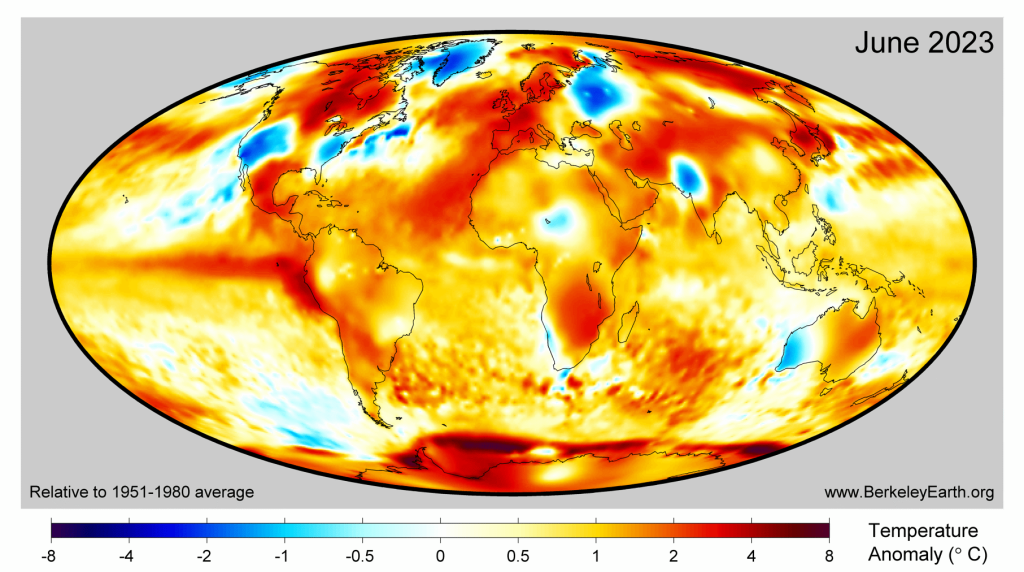**** Info via Environment Canada
Hottest week on record
According to preliminary data, the first week of July was the hottest week on record globally.
A preliminary reanalysis indicated that the global temperature on July 7 was 17.24°C, a value 0.3°C above the previous record of 16.94°C set on August 16, 2016, during a strong El Niño year. July 4 first unofficially broke the record with a temperature of 17.23°C. The following two days, July 5 and 6, saw a global mean temperature of 17.22°C.
Quick analysis from the World Meteorological Organization (WMO) based on the reanalysis data from Japan known as JRA-3Q, representing the global mean daily near surface air temperature. Source: WMO.
Warmest June on record
The warmest week on record follows the hottest June since records began in 1850 and broke the previous record set in June 2022. This June exceeded the previous record by 0.18 °C, a surprisingly large margin.
Particularly warm conditions occurred in the North Atlantic, Eastern Equatorial Pacific, Canada, the UK, Mexico, southern Africa, and Antarctica, while unusually cool conditions occurred in the Southwest United States, Western Russia, and Northwest India.

Temperature anomaly (difference from normal) for the month of June relative to the 1951-1980 average. Source: Berkley Earth.
El Niño’s impacts on temperature
The exceptionally warm period occurred just as the Tropical Pacific is entering an El Niño phase, which is anticipated to further fuel the heat on land and in the oceans and lead to more extreme temperatures and marine heatwaves. This warming effect of the El Niño is adding to the heating from human emissions of greenhouse gases that continue to drive a long term global warming trend.
With El Niño continuing to strengthen, 2023 will likely become a new record warm year (81% chance, according to Berkley Earth). In fact, due to the time lag between the development of El Niño and its full impact on global temperatures, the current El Niño will likely have a greater impact on global temperatures in 2024 than in 2023.
For more: WMO report: Preliminary data shows hottest week on record.




